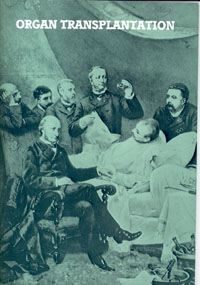Sign up to our newsletter Subscribe
Challenges and Solutions for Budget Impact Analysis of Gene Therapies

Organ transplantation is one of the most spectacular medical achievements of this century. The first successful human transplant operation took place in Boston, in 1954, when a single kidney was transplanted between identical twins (Murray et al, 1955). Subsequent improvements in surgical techniques,…
Organ transplantation is one of the most spectacular medical achievements of this century. The first successful human transplant operation took place in Boston, in 1954, when a single kidney was transplanted between identical twins (Murray et al, 1955). Subsequent improvements in surgical techniques, organ preservation, immunosuppressive therapy and life-support technology have made transplantation one of the most rapidly growing areas of modern surgical practice.
Operations that only a decade ago were regarded as high-risk, high-cost, experimental procedures are now accepted as a valuable part of the surgeons’ repertoire. Organ rejection has been reduced dramatically with the introduction of new immunosuppressive drugs, notably cyclosporin, so that longevity and quality of life after transplantation are constantly improving.
Cyclosporin has been credited with huge improvements in kidney transplantation and the transition of heart and liver transplants from experimental to effective therapy. As a result organ transplantation is becoming the favoured procedure in many circumstances, leading to a situation where demand for donor organs exceeds their supply. Attempts to overcome this problem have involved efforts to develop an artificial heart and the possibility of transplantation of organs from animals to humans.
Transplantation challenges ethical precepts, but traditionally such reservations have taken a back seat to the temptations and incentives to perform innovative operations. Now, however, the ethical issues are being widely discussed. Quite apart from the well-publicised scandals involving the sale of donor organs, problems have arisen in the conceptual foundations of the ‘brain death’ criterion.
This paper aims to deal exclusively with solid organ transplantation, namely, heart, lung, liver, kidney and pancreas, while recognizing the omission of the important area of tissue transplants, concerning bone, bone marrow, cornea, skin and heart valves. The OHE believe that the area of solid organ transplantation deserves detailed examination in the context of important resource allocation since it already absorbs a large amount from NHS funds.
Organ Transplantation
West, R.
(1991) Organ Transplantation. OHE Series on Health. Available from https://www.ohe.org/publications/organ-transplantation/